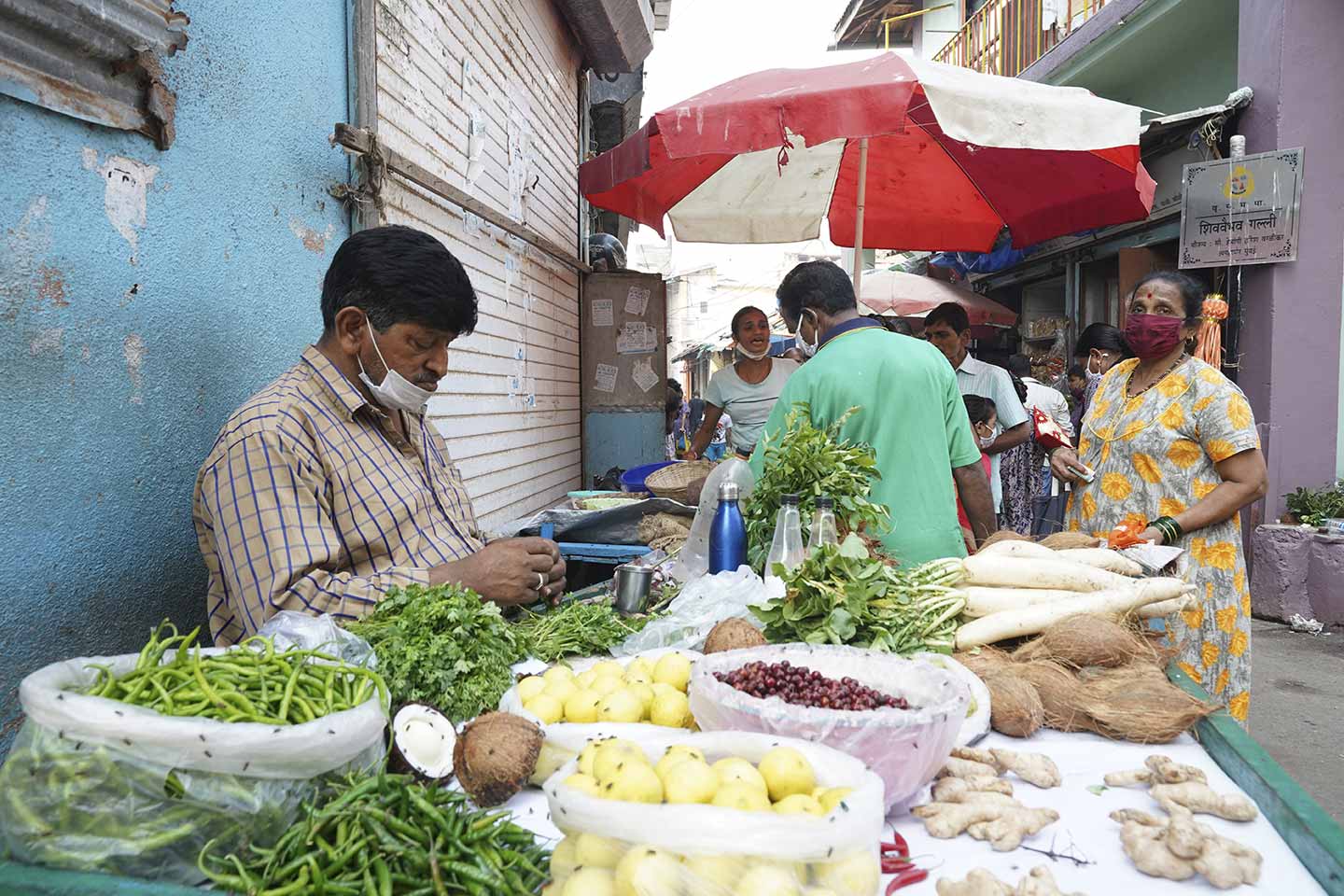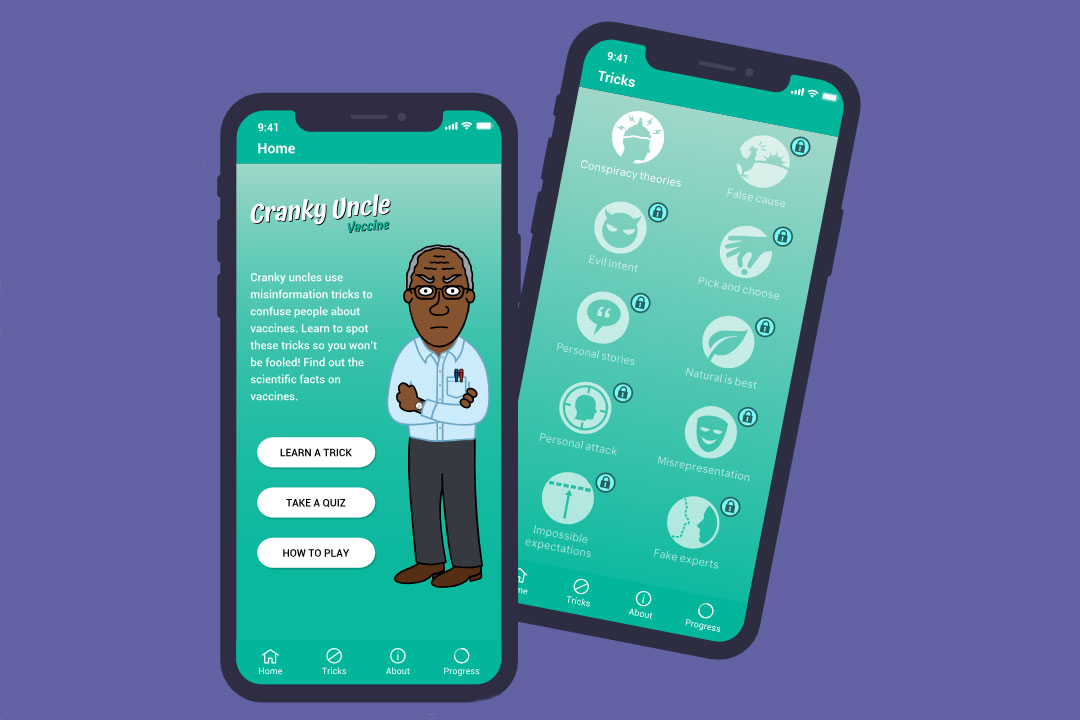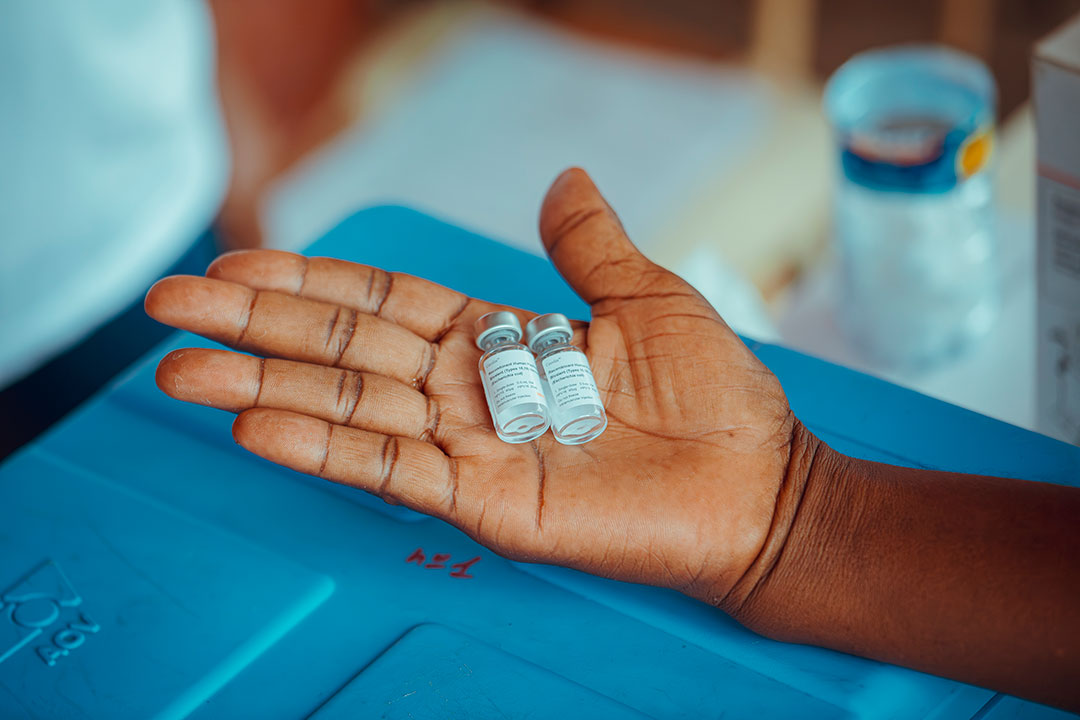Will we ever get rid of COVID-19?
The pandemic won’t last forever, but the virus that causes COVID-19 might. Here we look at what we can expect over the next couple of years in a Q&A with Dr Lee Hampton, pediatrician and medical epidemiologist at Gavi.
- 23 February 2021
- 9 min read
- by Priya Joi

Could COVID-19 ever be eradicated?
We've had several new diseases that showed up in the last 20 years which we were able to successfully contain and essentially eradicate. SARS is a great example. For two reasons, it's unlikely that we'll be able to do something similar with COVID-19. The first is that there's increasing evidence that the new variants that have been identified in the last few months really do make a difference in terms of immune responses. So immunity to one variant may not necessarily convey equivalent immunity to others.
A good example is that in late January, Novavax released the initial reports from their clinical trial in the US, the UK, and South Africa. One of the main findings was that the same vaccine was a lot more effective in the UK than it was in South Africa. And the main explanation given, which seems very plausible, is that the variants that were circulating in South Africa were different to the ones that the vaccine was developed against.
The same study also indicated that people in the trial who did not receive the vaccine and had previously recovered from COVID-19 were just as likely to develop symptomatic COVID-19 during the trial as people in the trial who did not receive the vaccine and had not previously had COVID-19. Earlier studies had shown that recovery from previous infection could provide pretty good protection against reinfection. Taken together, the data from the Novavax trial suggest that vaccines and recovery from previous infection with earlier variants provide a lot less immunity to infection from some of the newer variants. However, vaccines and potentially natural immunity may still provide excellent protection from severe disease and death from a range of SARS-CoV-2 variants.
The other reason eradication of COVID-19 is unlikely is that even if we were able to stop transmission among humans, we have multiple examples where there have been outbreaks among animals that humans come into regular contact with, such as in mink farms. So the likelihood is that you would have circulation among animals that can readily reintroduce the virus into human population. So I think it's quite likely that SARS-CoV-2 and COVID-19 are not going to go away.
There are two ways of getting to the point where everyone has immunity to severe disease; either they can acquire it naturally or you can get it through a vaccine, and we already know that acquiring it naturally is going to come at a huge, huge human and even economic cost.
So that means that eradication is really only feasible for a pathogen that only has a human host?
There are criteria developed about 30 years ago for determining which diseases can be eradicated. One is that there's no non-human reservoir. So in other words, there's no population of animals from which the virus can be readily reintroduced into human populations. That also means you need to have some way of eliminating it from sources such as laboratories that can readily reintroduce it into the human population. So, for example, that's a challenge with polio eradication as the continued production of polio vaccines with live viruses creates a real risk in terms of long-term eradication, because people are constantly manipulating those viruses and it may get reintroduced.
The second consideration is the need to stop transmission among humans. So that would typically mean a highly effective vaccine, although sometimes isolation of cases, contact tracing and quarantine have worked, as with SARS.
Finally, it has to be possible to identify cases and outbreaks with sufficient timeliness and accuracy to reliably guide decision-making about when and where that intervention was needed. That includes being able to confirm that you have stopped the transmission among humans with diagnostic testing.
At the moment with COVID-19 it's looking like we may not meet any of those, since there is animal transmission. Many of the world's laboratories are going to have the virus in their stores. And so the biosecurity element would be very challenging. COVID-19 diagnosis and surveillance has improved greatly over the last 12 months but still has major holes. Finally, vaccines may not be totally effective in stopping transmission, and many countries have not been able to stop transmission with lockdowns.
Many emerging infectious diseases that could cause pandemics come from animals, so does that mean we need to be extra careful about diseases that spill over to humans from animals because they’re harder to contain?
Exactly, it's reasonable to ask how frequently people have contact with the relevant animals. For example, with COVID-19, we think it originally came from bats, possibly through an intermediate species, but that doesn't happen very often. So you could take the view that reintroduction from bats is so unlikely that it's probably not really a huge problem. But it’s not something to be complacent about. Every Ebola outbreak that's ever happened is because the virus jumped from an animal host to a human population. And this has happened a couple of dozen times.
Given the fact that COVID-19 causes severe disease and has a relatively high fatality rate, does that mean that when it becomes endemic it would be as dangerous or could it become mild, like a common cold?
I think that's the multibillion dollar question. It could go down one of two routes at this point. One is that it's more like influenza, where people's immunity to severe disease and death changes over time, either because of waning immunity, or because of changes in the virus itself (creating variants). That's the more pessimistic version. In the 1930s, researchers were optimistic that they would be able to develop a universal flu vaccine. And when they realised how frequently influenza viruses changed, and how the immunity against one type of flu does not protect against others, they were crushed. So I think that's the more worrisome scenario that we're looking at at the moment.
Have you read?
But the more optimistic version would be that so far, there's no evidence indicating that the variants differ in terms of immunity to severe disease. The good news is that so far COVID-19 seems to be generally mild in children with a few very rare but tragic exceptions. So it may be that once all the adults worldwide have been infected or have received the vaccine, they’re immune to severe disease and death from all the other variants, so basically COVID-19 becomes an annoying childhood illness for the most part.
There have been a few cases of known reinfection with COVID-19. When the disease becomes endemic, are reinfection more or less likely?
I think the endemicity probably won't make a huge difference in terms of a reinfection rate. At that point, it just becomes a question of how frequently people are exposed to the virus. And in turn, that will also probably depend on questions like how frequently do new variants that make a difference in terms of reinfection rates or severity of disease appear, as well as how quickly does immunity to infection wane?
But the one other thing that's worth noting is that in respiratory syncytial virus (RSV), for example, which causes infections of the lungs and respiratory tract, when someone is reinfected with the virus, it actually boosts their immunity. This might happen with COVID-19.
We’ve got very effective vaccines for diseases like measles, yet there are still cases and still outbreaks, because of other factors such as access to vaccines, or maybe a reluctance to take vaccines. So how do we ensure there is good uptake of COVID-19 vaccines?
Even in the best case scenario, where SARS-CoV-2 ends up being something like RSV, where you can have long lasting immunity to severe disease, you would still need to vaccinate all the adults in the world. This is because there are two ways of getting to the point where everyone has immunity to severe disease; either they can acquire it naturally or you can get it through a vaccine, and we already know that acquiring it naturally is going to come at a huge, huge human and even economic cost. So ensuring that a high proportion of the population acquires that immunity as quickly as possible through vaccination will be critical. We already know this virus is so transmissible it will reach every part of the world – even areas that have so far been spared by the pandemic, such as remote Pacific Islands.
The real question in the long run will be whether it makes sense to vaccinate children? And I think that could be a very interesting and challenging discussion. Because while we know that children are the least affected by COVID-19, there are examples where the some countries decide to vaccinate children against diseases that are common but only rarely cause severe disease in children, like chickenpox. If it turns out that COVID-19 is more like influenza, then ensuring equitable access to the vaccine worldwide will also be very important, because as we've seen with influenza, unless there's an active effort to make sure that such vaccines are available globally, a lot of people miss out and suffer as a result.
Can you envisage whether we will still be using measures such as wearing masks and travel restrictions in the future?
Once all of the adults in a population who are at highest risk are vaccinated – health workers and those over the age of 50 years or so, or who have serious comorbid conditions – then I can see widespread lifting of restrictions. Hopes around herd immunity were very high last year, but I don’t think that’s going to happen. Because there are so many variants and new ones could emerge, even if herd immunity were achieved, it's likely to only be temporary.
The world has learned a lot about the control of infectious diseases from COVID-19. I would hope that some of the practices that have been adopted actually stayed in use in the long run. One major reason East Asia has had a relatively mild experience with COVID-19 compared to other parts of the world is probably because mask wearing was already common there. In the USA, for example, there are predictions that the combination of COVID-19 and the annual seasonal flu upsurge would be disastrous. But the USA has had its mildest ever flu season in years, largely because of physical distancing and mask-wearing. It could be a positive thing if mask wearing became as common in other parts of the world as it is in East Asia. But I would hope that travel restrictions and restrictions on how many people can gather in a certain place would hopefully be lifted again, once you have a sizable proportion of high-risk adults vaccinated.









